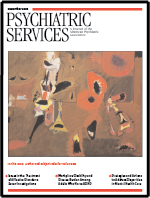I know of no way of reviewing a novel without giving some part of it away. So here is the bottom line, before the others: I think this is a good summer novel; many characters are introduced early, which can be confusing, but if you wait it out, it is worth the effort, and you will understand. Ultimately the novel is about biology, mental health, and being a grown-up. I have probably already given away too much information … but now I can explicate without guilt.
The Family Tree, by Carol Cadwalladr, is set in Britain. Its chapters alternate between the present and the past, and between exploration of what it means to be family in terms of developmental family relationships and in terms of biology. Ultimately it is about family secrets, such as bipolar disorder, Alzheimer's disease, and whom you have slept with. Ultimately it is about developing oneself into an adult and the reality that, no matter what history or biology has contributed to our development, we have to live in the present.
The protagonist is Rebecca Monroe. In the chapters that trace her growing up, we learn with Rebecca about her family, one character at a time. Her companion in discovery is her sister Tiffany. Throughout the book these characters bring an entertaining concreteness to everything from their understanding of sex to what it means for their grandmother to live in a "home" because of dementia. They provide entertaining commentary on the mystical behaviors of adults as seen through the eyes of children, and the mystical behaviors of family as seen through the eyes of other family members.
In the chapters about the future, Rebecca negotiates her relationship with her husband, Alister. Alister is a behavioral geneticist and is portrayed, as an adult, as someone who is as concrete as Rebecca and Tiffany were as children. His concreteness arises from his portrayal of relationships as deriving from genetics.
Later in the book the chapters shift from childhood to adulthood to just some of the tasks of adulthood: discovering who our family is and what their secrets are, discovering who our partners are and what their secrets might be, and that encounter with life and the eventual death that we all face.
The Family Tree is Cadwalladr's first novel. Like many first authors, she introduces many new characters early, perhaps in an effort to make the story richer. Confusing as this can be, it may be a calculated risk on her part. To her credit, she does resolve the issues with the side characters in the second half of the book, which is where the denouement lies. That said, there is no doubt that Cadwalladr has a great novelistic future ahead of her, and this book makes a highly entertaining summer read.

